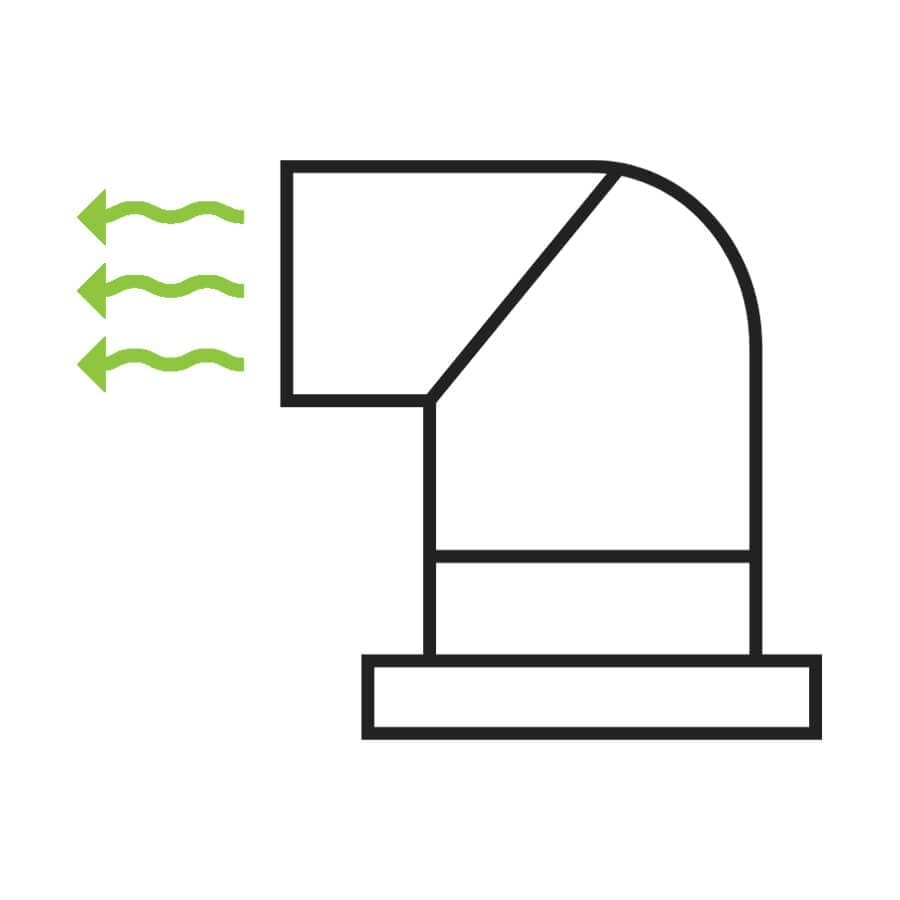Can you imagine a world where your utility bill doesn’t break the bank? Energy efficiency can help with that! Energy Efficiency Day is celebrated nationwide every year on the first Wednesday in October. The goal is straightforward: “Save Money. Cut Pollution. Create Jobs.” Energy Efficiency Day began in 2016, with the support of energy-efficiency advocacy groups such as Advanced Energy Economy and Alliance to Save Energy. But what about the relationship between energy and indoor air? Let’s take a closer look at the importance of energy efficiency, indoor air quality and the future of our planet.
What Is Energy Efficiency?
When a product is energy-efficient, it requires less energy than another device to perform the same function. For example, an air conditioning unit that requires less energy, but cools your home effectively is energy efficient. Energy efficiency is celebrated for its ability to reduce pollution, energy waste, water usage and consumer utility costs. Energy efficiency has been shown to improve the world around us. This is important as there is only one planet Earth.
Why Is Energy Efficiency Important?
The Environment and Human Health
Energy efficiency positively impacts our environment. In fact, energy-efficient appliances have the potential to reduce carbon pollution by 550 million metric tons by the year 2050. In addition to carbon dioxide, energy efficiency reduces the number of greenhouse gas emissions that severely impact our health.
The Economy and Job Production
Energy efficiency produces jobs, it’s a simple fact. In 2017, 3.2 million Americans were working in the clean energy industry. They outnumbered those working in the fossil fuel industry three to one. In fact, 18% of construction jobs are connected to the clean energy industry. It goes without saying that job production greatly benefits the economy.
Monthly Expenses and Yearly Savings
Energy efficiency can provide families and businesses great financial relief by reducing the cost of utility bills. While energy-efficient appliances may cost more initially, they save you money in the long run.
For example, an electric heat pump water heater can cost hundreds of dollars more than a standard electric water heater. However, an electric heat pump water heater can save you thousands of dollars over the years.
The Energy Gap
Some families spend the majority of their income on their utility bills. A family should not be forced to choose between electricity and food. Energy-efficient products have the power to change this dilemma. They can make the cost of utility bills tolerable so that families can live comfortably.
Energy Efficiency and Indoor Air Quality
How does energy efficiency impact indoor air quality? Well, many non-energy-conscious household appliances, such as wood-burning stoves, contribute to indoor air pollution. They release volatile organic compounds, particulate matter and other harmful pollutants. These emissions can seriously reduce indoor air quality and create a dangerous living environment. Overall, a greener more eco-friendly home is also a healthier home with better indoor air quality.
IAQ Tips and Tricks for an Energy Efficient Home
Heating and Cooling Efficiently
There is nothing more wasteful than heating or cooling an empty home. However, the temperature inside your home can be difficult to monitor when you are away. A programmable thermostat is the smart choice.
 Home Thermostat: Programmable thermostats are one of four main thermostat categories homeowners can choose from. Here’s what to know about home thermostats →
Home Thermostat: Programmable thermostats are one of four main thermostat categories homeowners can choose from. Here’s what to know about home thermostats →HVAC System Maintenance
To circumvent expensive repairs and an outrageous utility bill, complete HVAC system maintenance regularly. For example, replace dirty air filters and clean the outdoor unit multiple times a year. Even better, opt for a routine professional inspection once or twice a year. A well-cared-for HVAC system is an efficient system.
 HVAC Maintenance: Not only does HVAC maintenance contribute to a healthier and more energy-friendly home, but it’s also a crucial IAQ source control method. Here’s how →
HVAC Maintenance: Not only does HVAC maintenance contribute to a healthier and more energy-friendly home, but it’s also a crucial IAQ source control method. Here’s how →ENERGY STAR Products
Products with an ENERGY STAR label are energy-efficient. To be ENERGY STAR certified, products must meet the strict criteria established by the Environmental Protection Agency. Consider investing in HVAC products like furnaces, central air conditioners and geothermal heat pumps that are ENERGY STAR certified.
 Energy Rebates: Investing in new ENERGY STAR certified products may qualify for one of the new homeowner energy rebate programs recently passed in the Inflation Reduction Act of 2022. Learn more →
Energy Rebates: Investing in new ENERGY STAR certified products may qualify for one of the new homeowner energy rebate programs recently passed in the Inflation Reduction Act of 2022. Learn more →Energy Recovery Ventilation
Depending upon the climate you live in, an energy recovery ventilation system can increase your home HVAC’s energy efficiency while saving you money. On average, an energy recovery ventilation system can recover 70 to 80% of the energy in outgoing air and transfer it to the incoming air.
A Better World Through Energy-Efficiency
It’s no secret that investing in energy efficiency has numerous benefits. A solution that can fuel the economy, reverse climate change, protect human health and facilitate equity is rare. Take care of your current appliances and invest in energy-efficient appliances when it’s time for a replacement. Let’s commit to living in a better world, together.




